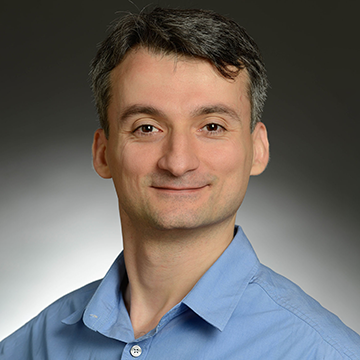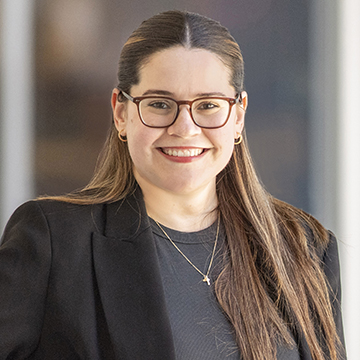Cell Adhesion, Signaling & Metabolism
In order for cells, tissues and organs to survive and function in an integrated fashion, they must have a way of communicating. This can involve mechanical signaling and chemical signaling.
Through research, our faculty investigates:
- The proteins involved in regulating the interactions between epithelial cells and the extracellular matrix
- How the extracellular matrix is assembled and remodeled
- How cells in a tissue polarize relative to each other
- How organelles within a cell communicate with each other and coordinate their activities
- How mitochondrial and nuclear genetic systems coordinate with each other to meet the cells energy demands
- How transcriptional differences between single cells manifests into distinct functional outcomes in response to external cues

Yogesh Goyal Lab
We combine novel experimental, computational, and theoretical frameworks to quantitatively monitor and control single-cell variabilities and emergent fate choices in development and disease.
Congcong He Lab
Our work is centered on autophagy, a lysosomal degradation pathway essential for nutrient recycling, cellular maintenance and physiological function. Autophagy is induced by various stress conditions and allows cells to adapt to changing nutrient and energy demands through protein catabolism. Malfunction of autophagy is implicated in a variety of diseases, such as cancer, neurodegeneration, infection and aging.


Luisa Iruela-Arispe Lab
We focus on elucidating the molecular mechanisms that regulate vascular morphogenesis during development and in disease.
Brian Mitchell Lab
Our goal is to understand the integration of signaling and cytoskeletal dynamics on diverse developmental processes including centriole amplification, cell migration and cell polarity.


Ertuğrul Özbudak Lab
We aspire to elucidate the engineering principles controlling developmental pattern formation by integrating quantitative experiments with computational modeling.
Saba Parvez Lab
Our lab is interested in understanding how certain noncoding genomic regions regulate animal development. We employ high-throughput functional genetics in a zebrafish model system to answer these questions. We are specifically interested in poison exons, a class of noncoding alternative exons, whose inclusion results in degradation of the resulting transcript through nonsense mediated decay. Misregulation of poison exons is implicated in several diseases including cardiovascular and neurodevelopmental disorders. We investigate what roles poison exons play in animal development and disease.


Richard Scarpulla Lab
We are looking to further define the molecular interactions and physiological functions of transcriptional activators and co-activators involved in the nuclear control of the respiratory apparatus.
Lisandra Vila Ellis Lab
Our lab aims to elucidate the mechanisms for vascular specification and regeneration in the lung.
